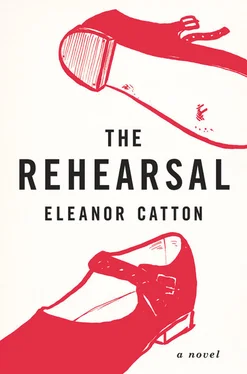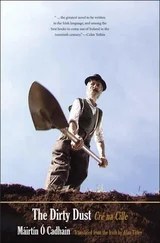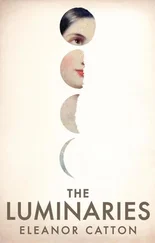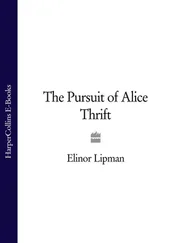It makes the saxophone teacher smile to imagine mousy Bridget in Isolde’s role. It makes her think fondly that maybe there is a glimmer of hope after all for this pale stringy rumpled girl who chews at the end of her hair and wears her kilt just a fraction too high and tries so desperately hard.
For the role of Bridget the saxophone teacher imagines casting the girl who is currently playing Julia, mentally redressing her in a school uniform that is musty and overlarge and ever so slightly wrinkled. She imagines the girl’s posture changing, becoming withdrawn and apologetic, withering in the way that a rind of raw bacon shrinks away from the heat of the pan. The role of Bridget would be the easiest of the three, because Bridget is a victim, and victims are easy. After playing Julia, the role of Bridget would be a cinch.
Into the role of Julia the saxophone teacher inserts the round-faced girl who is currently playing Isolde. This transformation is the hardest to picture, because it is the most subtle. The saxophone teacher reflects that the girl behind Isolde is possibly too virginal to play Julia: the perfect vanity of Julia’s self-loathing is something that this girl is not yet sullied enough to grasp.
The saxophone teacher thinks fondly of her students as she sits at the window with her chin on her fist and looks out over the rooftops and the clouds. Then there is a knock at the door and she puts her mug of black-leaf tea to one side. She smoothes her trouser leg and says, “Come in.”
Friday
The ginkgo tree rises out of a small square patch of earth in the middle of the courtyard. The concrete bulges and crumples in peaks around the base of the trunk where the tree has shifted in the ground. The fallen leaves are trodden by now into a yellow-smelling paste, choking the drains and fouling the cobbles with a dirty sallow film.
She is still early, and dimly she can hear the low honk of a tenor sax playing an ascending scale, the sound drifting over the slate tiles and down into the empty courtyard with its naked ginkgo tree. Rising above the courtyard is the old observatory tower, closed to the public now, the white-ribbed dome stained a patchy lichen green, the stippled wrought-iron staircase waxed over with bird droppings and dirt.
The saxophone teacher’s studio is in a sprawling cluster of buildings that once housed the museum and a few obscure departments of the university. Now the bricked quadrangles and cloisters and narrow unexpected gardens are privately leased, the old exhibition rooms divided into offices and studio spaces and stores.
The tenor sax moves up a semitone and repeats the exercise. Isolde checks her watch: she is almost fifteen minutes early. She swings her sax case idly and looks around the courtyard for something to do. The concrete is blackened and dulled with the recent rain, glum puddles pooling underneath the drainpipes, the birds shrugging off the drips as they hop between the wires. Isolde steers herself vaguely away from the tree and the high observatory tower, and wanders into an alley with the dim purpose of finding a bakery and buying a hot bun.
As she passes through the cloisters she begins to hear the low thump of a far-off drumbeat. Sometimes there is free theater or performance art by the hot-bread wagons that park on the far side of the cloisters, and she absentmindedly pursues the sound through a narrow arch and down a wet bricked alley until she comes to an open door.
The door is halved horizontally by a steel bar, and at chest-height there is a shiny patch where the oil from thousands of hands has worn the paint away. At present the door is wedged open with a brick, and from within Isolde can hear shouting and the clear thump of a drum.
She slips in quietly, padding down the corridor and up a small set of white-nosed stairs. She passes several dressing rooms with doors ajar and realizes that she must have entered the old auditorium by the players’ door. She hesitates and almost turns back, but the drum-thump is louder now and she can hear voices, and she resolves to go on and at least take a look before slipping back the way she has come. She emerges in the thick velvet blackness of the wings, and inches forward in the dark until she finds a gap in the cloth that will give her a view of the stage.
From the wings the stage looks chaotic, the chalk and pencil lines all visible, the painted flats slantwise and cramped together and unbeautiful, and on the far side the jumbled mess of props and costumes in the wings opposite. Isolde can see a small number of backstage watchers, separated from each other by the quivering upright cloth of the wings, some in costume and standing tense on the balls of their feet as they wait for a cue. She can see past the footlights into the foggy dark underbelly of the two-tiered auditorium, and in the foreground the silhouetted players lit around their edges like the bright thread around the rim of a solar eclipse.
In center stage there is a boy in a scarlet turban, wearing shabby coat-tails, a torn dirty ruff, and white gloves that are loose at the wrist and soiled. Vertical black diamonds are painted over each eye, spearing down his cheeks and cutting a sticky greasy track through the white powder on his face. They give him an odd haunted look, merry and melancholy at once. From where she stands Isolde can barely see his profile, just the curve of his cheek and the swell of his turban above his temple and a flash of black diamond every time he turns his head.
“This is a complete deck of cards,” the boy is saying into the dark, shuffling a deck of cards so they cascade neatly from his right hand to his left. “No joker. Aces low. The card you draw from this deck will be yours to keep. You will carry it around with you always like a dirty secret.”
With a flourish the boy fans the cards in an arc on the felt table in front of him. Her eyes are focusing now, and Isolde becomes aware of others on the stage, clothed in red and black and foaming around this central boy like lepers. The boy is tall and proud and glittering, harshly lit as if he is a figure in an overexposed photograph, bright and misted and glassy-eyed against the glare.
“If you pick a card of a black suit you will be attracted to men. If you pick a card of a red suit you will be attracted to women. The number value on any spot card indicates your sexual prowess. Ten means you’re good; ace means you only think you’re good.”
The boy is whipping the cards out of the pack as he speaks, holding them up between his fingers and his thumb, then puckering his hand swiftly so the card pops out and flutters into the air above him. He catches the fluttering card with his free hand, his other hand already reaching to pick up the next. The effect is rather like he is juggling, the cards tossed up in an explosive little arc and snatched away before they fall.
“If you pick a court card, your sexual life might get a little more complicated. In general, a queen of any suit forces you to cross-dress, a king will give you a sadistic tendency and a jack will give you a masochistic tendency. But there are exceptions.”
The kettle-drum roll is building and building. As the drum roll gets slowly louder, the boy becomes gradually more urgent. His movements get faster and his throat gets tighter and his voice gets more insistent. The black-clothed figures on the stage have begun to writhe.
“The King of Diamonds is the only king to carry an axe instead of a sword. For this reason he is known as the Man with the Axe. If you draw the Man with the Axe, your sexual appetite may well develop into a perversion.
“All the court cards are shown in full face except for three: two of the jacks and one of the kings are always in profile. If you draw one of these one-eyed cards, you will be prone to self-deception and dishonesty.
Читать дальше












